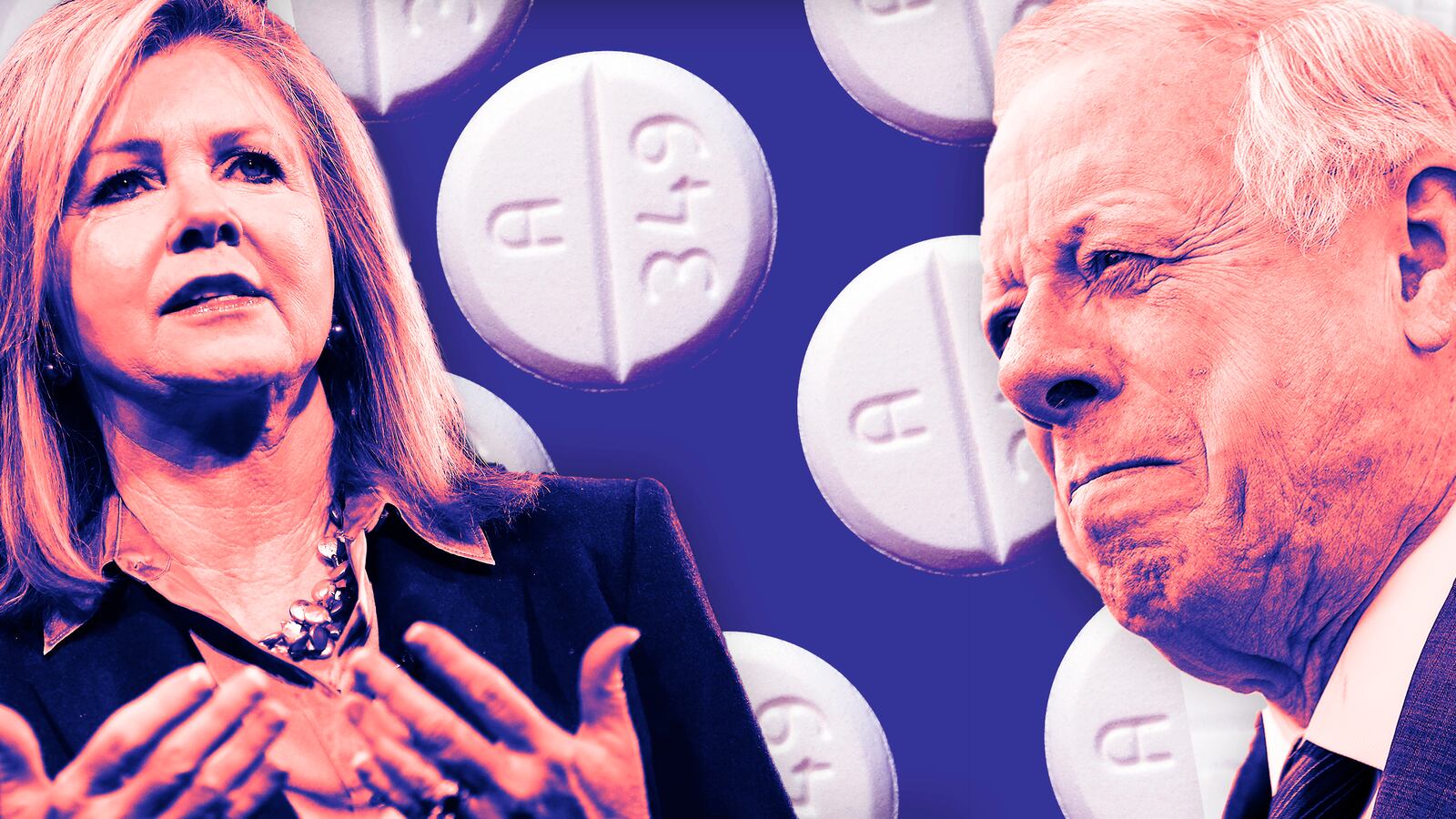KNOXVILLE, Tennessee—At the White House on Wednesday, lawmakers celebrated a rare act of bipartisanship as President Donald Trump signed landmark legislation aimed at tackling the opioid crisis.
But 500 miles away, even an issue that has brought Democrats and Republicans together has become divisive as Rep. Marsha Blackburn (R-TN) and former Gov. Phil Bredesen (D) jockey for the open seat in the U.S. Senate.
Blackburn and Bredesen are hoping that the focus on opioids will help sway some undecided voters in the final two-week stretch of the campaign. And both candidates say the opioid crisis is a top-three issue among Tennesseans.
But that’s where the comity ends.
Their campaigns, combined with the outside groups supporting them, have spent at least $12 million on advertisements highlighting the crisis. But the tenor of those ads is rubbing some voters the wrong way.
“You can’t miss them. If you try to avoid them, you can’t avoid them. It’s gotten really bad. This race in particular has seemed to have, in the last few weeks, turned dark. It’s very off-putting,” said David Belew, who owns a small chain of pharmacies in the Knoxville area.
Bredesen’s campaign, along with the Tennessee Democratic Party and liberal outside group Majority Forward, has poured millions into campaign advertisements attacking Blackburn over what they say is her dishonesty on the issue. Blackburn, meanwhile, is keeping the spotlight on her support for enforcement measures at the southern border—where narcotics that kill Americans often make their way north—and tying Bredesen to some in his party who oppose stricter border enforcement. Her campaign also has run positive advertisements focusing on her support for measures aimed at combating the crisis.
Belew remains undecided in this tight Senate contest, but the partisan jabs haven’t brought him any closer to a decision.
He has seen the opioid crisis ravage middle America and create unbearable heartbreak along the way—so he decided to take matters into his own hands, hiring a patient-care coordinator who could focus squarely on developing an educational program to prevent opioid addiction.
The program has already steered five people toward treatment options.
“We’re there for our patients in any capacity they need us. And I thought that was something really lacking. If somebody comes to me and says, ‘I’ve been on this for two months or 12 years. I’ve got a problem. What do I do?’” said Belew, who attended a roundtable here with Bredesen on Wednesday to discuss ways to reduce prescription drug prices.
Like other medical professionals, Belew felt that he needed to do his part to help stem the crisis. In recent years, more Tennesseans have died from opioid overdoses than in car accidents.
“The problem is so much more than the medication. The problem is, we’ve raised a second generation of individuals who, instead of dealing with life’s events as they come, look for some sort of pill to take, some sort of substitute,” said Belew.
It’s hard to find many people who would disagree about that.
But Blackburn and Bredesen, well aware that undecided Tennesseans could determine their votes on this issue, are trying to convince this key bloc that they are the best candidate to handle the crisis.
As he tries to appeal to Republicans in a state that Trump won by 26 points in 2016, Bredesen, a former two-term governor and Nashville mayor, has praised Trump’s negotiating style and often tells voters he wants to work with the president to solve the problem. Blackburn, he said, is too close with the pharmaceutical industry to be trusted with keeping them in check.
“My opponent went to Washington and got very cozy with the pharmaceutical companies and is unlikely to do anything that interferes with their business,” Bredesen, a wealthy former health-care executive, told The Daily Beast in an interview as he campaigned in Knoxville.
He’s referring to a 2016 bill that sailed through Congress and was signed into law by then-President Barack Obama. The law, which Blackburn co-sponsored, was featured in a joint Washington Post-60 Minutes investigation last year which found that the legislation weakened the Drug Enforcement Administration’s (DEA) ability to crack down on nefarious opioid imports. Bredesen and his campaign have tied Blackburn to the drug companies that lobbied in favor of the law. Additionally, his campaign has highlighted the fact that Blackburn was not present for the House’s vote earlier this year on the opioids package that Trump signed into law on Wednesday.
Blackburn has said she backed the DEA legislation because she believed it would ensure that Americans who are in genuine need of opioid drugs would not be cut off.
She has also seized on some Democrats’ calls to abolish Immigration and Customs Enforcement (ICE), throwing her support behind the agency’s work to stem the flow of narcotics from Mexico and Central America. Bredesen has distanced himself from Democrats who want to scrap the agency.
No matter who wins this critical state on November 6, Dr. Stephen Patrick, a pediatrician at the Vanderbilt University Medical Center who has testified on Capitol Hill about the scourge, said this issue will remain top of mind for years to come.
“Tennessee has a real problem. Still, in many communities there are more prescriptions written for opioid pain relievers than there are people who live in that county,” Patrick told The Daily Beast. “It continues to escalate, and we need attention to it. Any discussion about it is important.”







